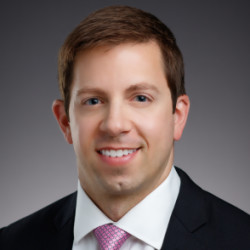This past week, a record-breaking number of surgeons, advanced providers, nurses, and trainees from around the globe assembled in Boston, MA for the annual American Society of Breast Surgeons (ASBrS) meeting. This year’s conference featured educational lectures from the world’s top breast surgeons and novel scientific presentations from trainees and experienced clinical investigators. Meeting participants were greeted Thursday evening by Dr. Brigid Killelea, Program Committee Chair and surgeon at Brigham and Women’s Hospital and Dana-Farber Cancer, and by the society’s President, Dr. Nathalie Johnson, surgeon and Medical Director of Legacy Cancer Institute.
Friday morning began with educational sessions focused on advancements in radiation oncology and breast imaging. Dr. Puneet Singh of the University of Texas MD Anderson Cancer Center discussed recent data on preoperative radiation and Dr. Nora Hansen from Northwestern University and Lynn Sage Comprehensive Breast Center discussed growing data supporting the role of re-irradiation for patients who experience an in-breast tumor recurrence after previous lumpectomy and radiation. This was followed by Constance Lehman, MD from Massachusetts General Hospital, who discussed recent cutting-edge advancements in artificial intelligence for breast imaging and early cancer detection.
Later that morning, Dr. Nathalie Johnson delivered an incredible Presidential Address entitled, “A Long Time Ago in the Future,” which inspired attendees to continue to push the boundaries of breast cancer care to optimize patient outcomes. Friday afternoon featured the spirited and always enjoyable “The Great Debates” session in which expert surgeons Dr. Judy Boughey of the Mayo Clinic and Dr. Michael Dixon of the Edinburgh Breast Unit debated the role of neoadjuvant endocrine therapy for premenopausal women. This was followed by Dr. Monica Morrow of Memorial Sloan Kettering Cancer Center and Dr. Michael Alvarado from the University of California San Francisco debating the role of pre-operative clipping of axillary nodes and their subsequent surgical management – leaving the audience much to ponder on when deciding how to best manage these increasingly common clinical scenarios.
The Friday afternoon sessions featured the first of two scientific oral sessions and the ‘quickshot’ research session. Dr. Robert Pride, fellow at Massachusetts General Hospital/Brigham and Women’s and Dana-Farber Cancer Institute, presented compelling data on how surgeons can reduce axillary overtreatment in women with clinically node-negative disease undergoing upfront mastectomy by avoiding intraoperative frozen section – echoing previous findings from a 2020 survey of the ASBrS. Dr. Abida Sattar of Aga Khan University, inspired by her findings from a 2021 survey of the ASBrS, presented a double-arm randomized clinical trial demonstrating no benefit to extended post-operative antibiotic prophylaxis in patients undergoing mastectomy without reconstruction. During the ‘quickshot’ session, Dr. Ashley Cairns of Wake Forest University presented data from the SHAVE trial which found no difference in the positive margin rate for patients who undergo preoperative breast MRI followed by lumpectomy. Findings on the novel POWER-PAK score, which aims to predict tumor response in patients receiving preoperative endocrine therapy (ET), was presented by Dr. Max Meneveau from the University of Virginia. Friday evening featured the society’s annual poster-session, which featured >200 posters and allowed attendees the opportunity to network and reconnect with colleagues over drinks.
A session on breast cancer disparities and opportunities for surgeons to lead the way in eliminating inequities in cancer care kicked off Saturday morning. National thought leader Dr. Lisa Newman from Weil Cornell Medical Center discussed her groundbreaking work in anthropologic oncology and Dr. Mediget Teshome from the University of Texas MD Anderson Cancer Center presented on clinical opportunities in genomics and precision oncology to mitigate cancer disparities. Dr. Jane Mendez from Miami Cancer Center discussed the unique obstacles that Latin American women face with breast cancer. The meeting’s keynote address was delivered by Dr. Jo Buyske, President and CEO of the American Board of Surgery, in which she presented the upcoming breast focused practice designation for surgeons. As the day progressed, Dr. Helen Pass of Stamford Hospital presented a crowd favorite, “The Best Papers of 2022” which featured many articles selected for the society’s online ‘Selected Readings’ CME program.
The second scientific oral session on Saturday afternoon featured data on how the Covid-19 epidemic impacted de-escalation efforts for older women with early-stage, hormone-receptor positive breast cancer presented by Dr. Ton Wang, fellow at Cedars-Sinai Medical Center and future surgeon at Duke University. On behalf of the Keynote-522 investigators, Dr. Heather McArthur from UT Southwestern Medical Center presented an updated sub-analysis on perioperative outcomes in patients who received pre-operative pembrolizumab in the Keynote-522 cohort which identified no significant differences in perioperative complications. That evening, updates on novel investigations were presented including the status of the COMET trial, recent results of the SentiNot study, and advancements in the dynamic and novel I-SPY 2 trial.
One of the most compelling sessions of the meeting was on sexual health among breast cancer patients and survivors. Dr. Liz O’Riordan, breast cancer surgeon, cancer survivor, and acclaimed author and advocate, passionately presented opportunities for providers to discuss sexual health with their patients and educated providers on methods to improve patient sexual health in response to cancer treatment. This session also featured Dr. Anna Weiss from the University of Rochester, who presented on endocrine therapy management for surgeons. Despite being at the tail end of the meeting, Sunday morning’s sessions were packed with attendees. Dr. Tari King from Brigham and Women’s Hospital and Dana-Farber Cancer Institute presented data on pleomorphic and classic lobular carcinoma in situ including its implications and options for patients. Options to minimize lymphedema were reviewed by Dr. Suzanne Klimberg from the University of Texas, including novel surgical techniques such as ARM and LYMPHA.
The annual ASBrS meeting continues to offer a unique educational and networking opportunity for breast cancer providers and a forum to discuss novel scientific discoveries in breast surgical care. This year’s meeting in Boston did not disappoint and I’m looking forward to another excellent time next year in Orlando, FL!
Dr. Cortino has no conflicts of interest to report.
Image by DrAfter123 / Getty







